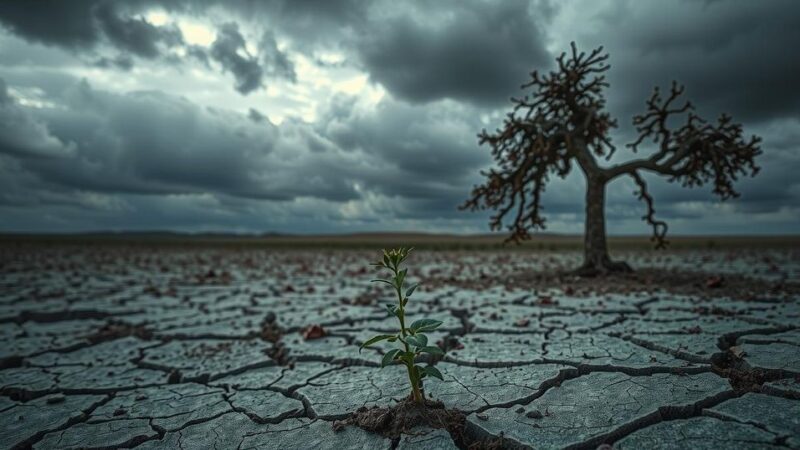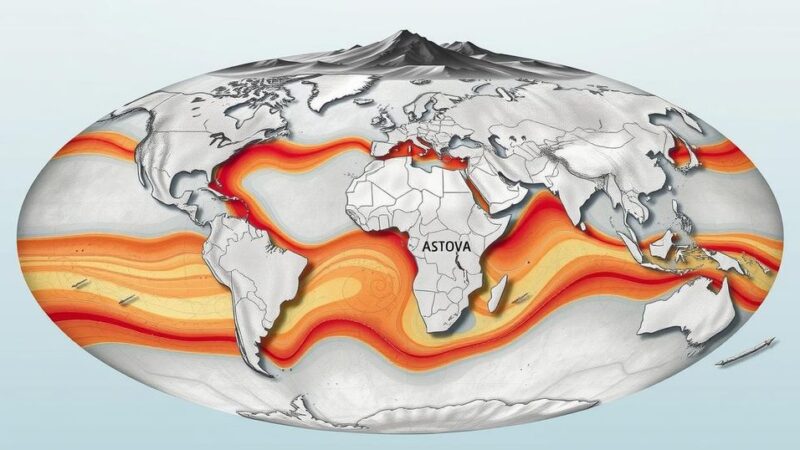UNICEF reports that 51 million children in eastern and southern Africa are at risk due to extreme weather events. One in three children under five faces severe food poverty, exacerbated by malnutrition, health issues, and inadequate support. Countries like Malawi and Zambia are in crises due to drought and flooding, necessitating immediate action to promote resilience and protect children’s futures.
A recent United Nations Children’s Fund (UNICEF) report reveals that the futures of 51 million children in eastern and southern Africa are jeopardized by unpredictable extreme weather events. One in three children under five, totaling approximately 64 million, are trapped in severe food poverty due to inequity, conflict, and climate-induced hardships. The report emphasizes the need for immediate action to address the multifaceted challenges faced by these vulnerable populations.
Children in the region are suffering from malnutrition, specifically wasting, as a direct consequence of inadequate health support, contaminated water, poor sanitation, and limited educational opportunities. Natural disasters, intensified by climate change phenomena like El Nino and La Nina, exacerbate existing health crises, including cholera and mpox outbreaks. Countries such as Lesotho, Malawi, Namibia, Zambia, Zimbabwe, and Botswana face significant challenges linked to climate change.
Malawi is experiencing a dire situation, with 9 million individuals, including nearly 5 million children, in urgent need due to erratic rainfall and prolonged drought that devastate crops across 23 of its 28 districts. Similarly, Zambia has declared a national emergency as drought and subsequent floods push over 6.5 million people, including 3 million children, toward severe food insecurity and illness. Zimbabwe confronts prolonged drought conditions that have undermined both food and water supplies, resulting in heightened risks of violence and disease outbreaks.
The UNICEF report underscores the critical importance of collaborative efforts among organizations and communities to safeguard children’s futures. With increasing extreme weather events, conflict, political instability, and pervasive poverty, UNICEF is adopting climate-smart programming strategies to support vulnerable populations. By partnering with local communities, UNICEF aims to enhance resilience against climate shocks and promote sustainable practices.
UNICEF is also committed to reducing its emissions through sustainable energy initiatives, which align with its mission to empower children and families while addressing urgent humanitarian needs. The agency’s threefold approach is designed to build momentum for climate action, ultimately enabling a comprehensive response to the humanitarian crisis affecting children and families in the region. Immediate and concerted efforts are essential to protect and empower future generations from the escalating impact of climate change.
The article discusses the severe impact of the climate crisis on children in eastern and southern Africa, particularly focusing on the findings of a UNICEF report. It illustrates the precarious situation faced by children vulnerable to extreme weather patterns, exacerbated by poverty, conflict, and inadequate health and nutrition support. This overview informs readers about the broader implications of climate change on child welfare, particularly in the context of food insecurity and health crises.
The grave implications of the climate crisis for 51 million children in eastern and southern Africa highlight the urgent need for intervention. With a significant number of children facing malnutrition and health risks due to extreme weather, collaborative efforts among various organizations and communities are crucial. UNICEF’s commitment to supporting vulnerable populations through climate-smart programming and sustainable practices is essential to mitigate the challenges posed by climate change.
Original Source: www.chinadaily.com.cn






